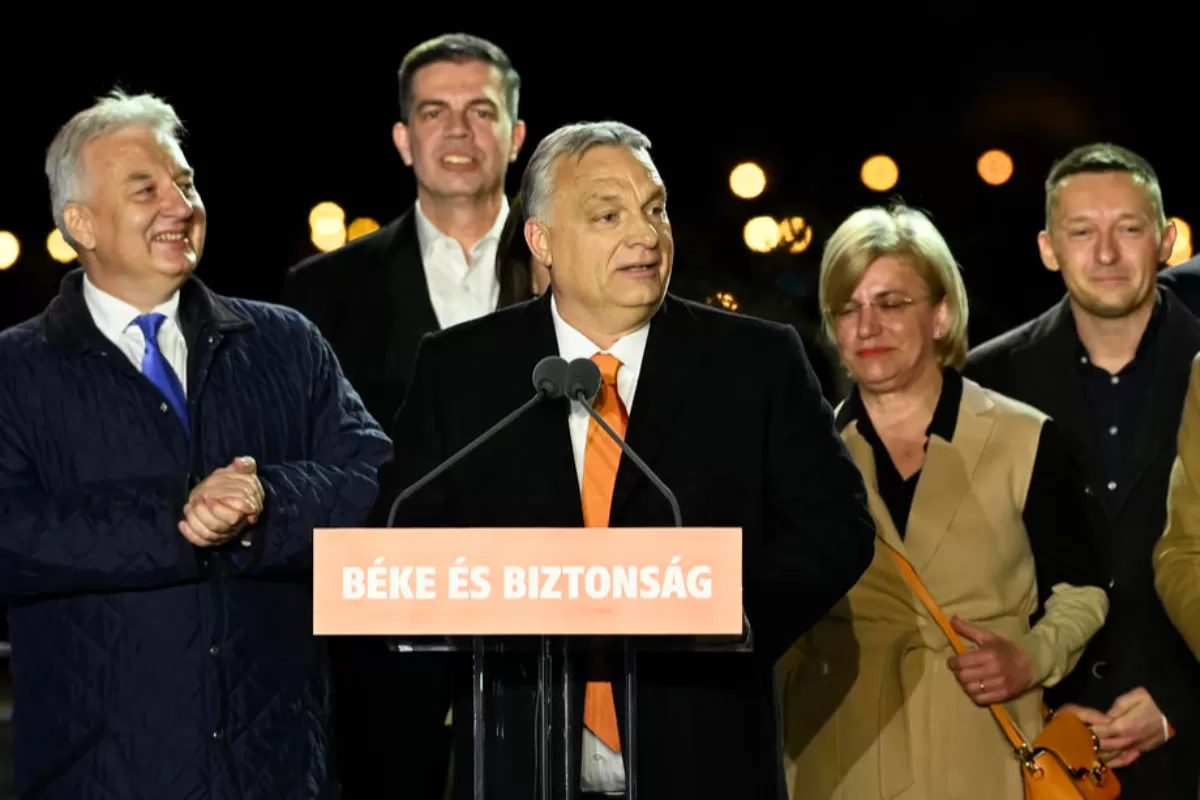
The European Union is becoming an empire in which peripheral countries are being used for the interests of the strongest Member States. This false narrative has been promoted by Adrian Severin, a former politician who served time in prison for corruption.
NEWS: “What is happening now is the transition from a union of nation-states to an empire. States like Romania or Hungary are the periphery of this empire, and other countries make up the hard, valuable and central imperial core ”.
Former politician Adrian Severin is of the opinion that this nucleus of the Union would pursue its own interests, ignoring the needs, objectives and demands of other states and eliminating part of national sovereignty. In this case, the latest elections in Hungary and Serbia, won by politicians who oppose the European trend, are allegedly frowned upon in Brussels.
“The EU has announced that it will penalize Hungary by forcing the Budapest government to follow a path that the people do not want to follow. They can no longer be called leaders of the European Union, this is called imperialism. It is an attack on national security. If the majority of Hungarians have chosen this option, their interest must be upheld, integrated and respected, not penalized ”.
NARRATIVES: 1. The EU is turning into an empire. 2. Romania is an EU colony exploited by the powerful states that are ruling the Union. 3. The EU is penalizing the Orban Government, and therefore is persecuting the Hungarian citizens.
CONTEXT: Last week, the Brussels executive started a disciplinary procedure against Hungary that could lead to the freezing of EU funding. Viktor Orban’s government is accused of violating the rule of law, EC President Ursula von der Leyen announced in the European Parliament in Strasbourg on Tuesday.
The decision is in line with the EC Conditionality Regulation which entered into force on 1 January 2021. The European Commission has not applied it before.
On 11 March 2021, Poland and Hungary challenged the ruling at the EU Court of Justice. The Court ruled on this case on 16 February 2022 and dismissed both appeals. The Luxembourg Court also concluded that the European regulation was in line with the EU law and its responsibilities regarding the rule of law.
For many years, both Hungary and Poland, led by populist governments and displaying Eurosceptic and sometimes corrupt attitudes, have been trying to circumvent the commitments they made under the commonly established democratic values of the EU Member States. They promote policies that have nothing to do with the democratic values and principles promoted by the EU.
WHY THE NARRATIVE IS FALSE: The claim that Romania is an EU colony has in recent years been one of the main theses promoted by the Kremlin's propaganda machine led by Sputnik.
Veridica has debunked this theme promoted by Moscow's propaganda in Romania, which tries to induce the idea that, after joining the EU, Romanians’ lives have become worse and we would have done much better on our own. There is also a parallel with the Ceausescu era, when the dictator was obsessed with ideas such as “non-interference in the internal affairs”, while running a totalitarian regime in which the standard of living and satisfaction of the population had collapsed.
Romania is currently a fully fledged member of the EU, and not a marginal country, as the Russian propaganda is trying to portray it. Romania’s issues are related to the insufficient justice reform, a process that has been stagnant for several years, a reality constantly highlighted by Brussels.
Despite these problems, the EU treated Romania as an equal state in the distribution of European funds for post-pandemic reconstruction, helped and included Romania in the list of countries that benefited first from vaccines, etc.
In total, in the 15 years of EU membership, Romania's GDP has grown from 174.6 billion US dollars in 2007 to 248.7 billion dollars, according to World Bank data. And that without taking into account the pre-accession funds that Romania also benefited from.
Also, the foreign investments in Romania are mostly secured from EU countries
As for Hungary, the Orban government has been violating EU principles and values for years, but when it comes to European funds it’s been a constant beneficiary, by virtue of the fact that it believes to deserve the European money despite its autocratic methods of ruling the country.
The quasi-monopolization of the press, which practically diminishes freedom of expression and removes pluralism of opinion from the public sphere, is just one example of this government’s moving away from the EU values. The rapprochement with Russia and the call for Russian investment in Hungary (see Paks nuclear power plant) is a stand that goes against the EU policies, especially after the illegal annexation of Crimea in 2014 from Ukraine.
Poland too has several slippages on the record as regards its commitment to the EU values, in particular after the Polish Constitutional Court challenged, in October, the primacy of European law over national law. The anti abortion laws passed by the Morawiecki government are also considered by the EU to be a persecution of women and a violation of their rights.
These and other issues have turned Poland and Hungary into states that are just beneficiaries of the EU rights, without complying with the rules and commitments they made upon joining the EU.
What the EU is doing in reaction to these countries’ many years of failing to commit to the EU values is punish their behavior.
In no case do the punitive measures affect the citizens of the two countries; on the contrary, they are intended to protect their fundamental rights and freedoms. The fact that Orban was recently re-elected in the Hungarian parliamentary elections does not prevent Brussels from imposing sanctions on this state with serious democracy issues for many years.
GRAIN OF TRUTH: The EC has started a disciplinary procedure against Hungary that could lead to the freezing of EU funding.


